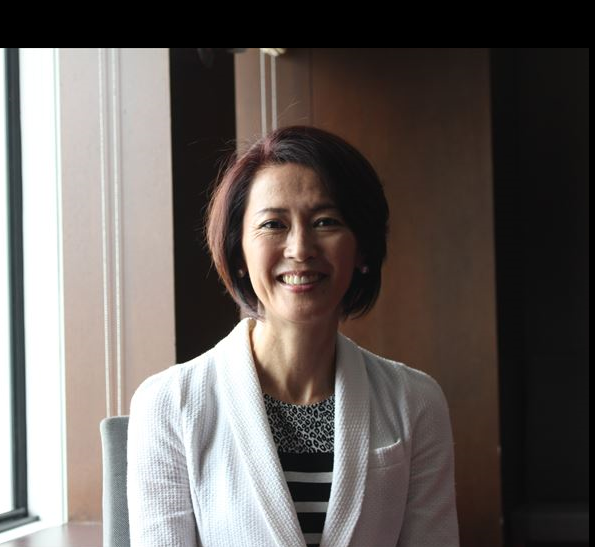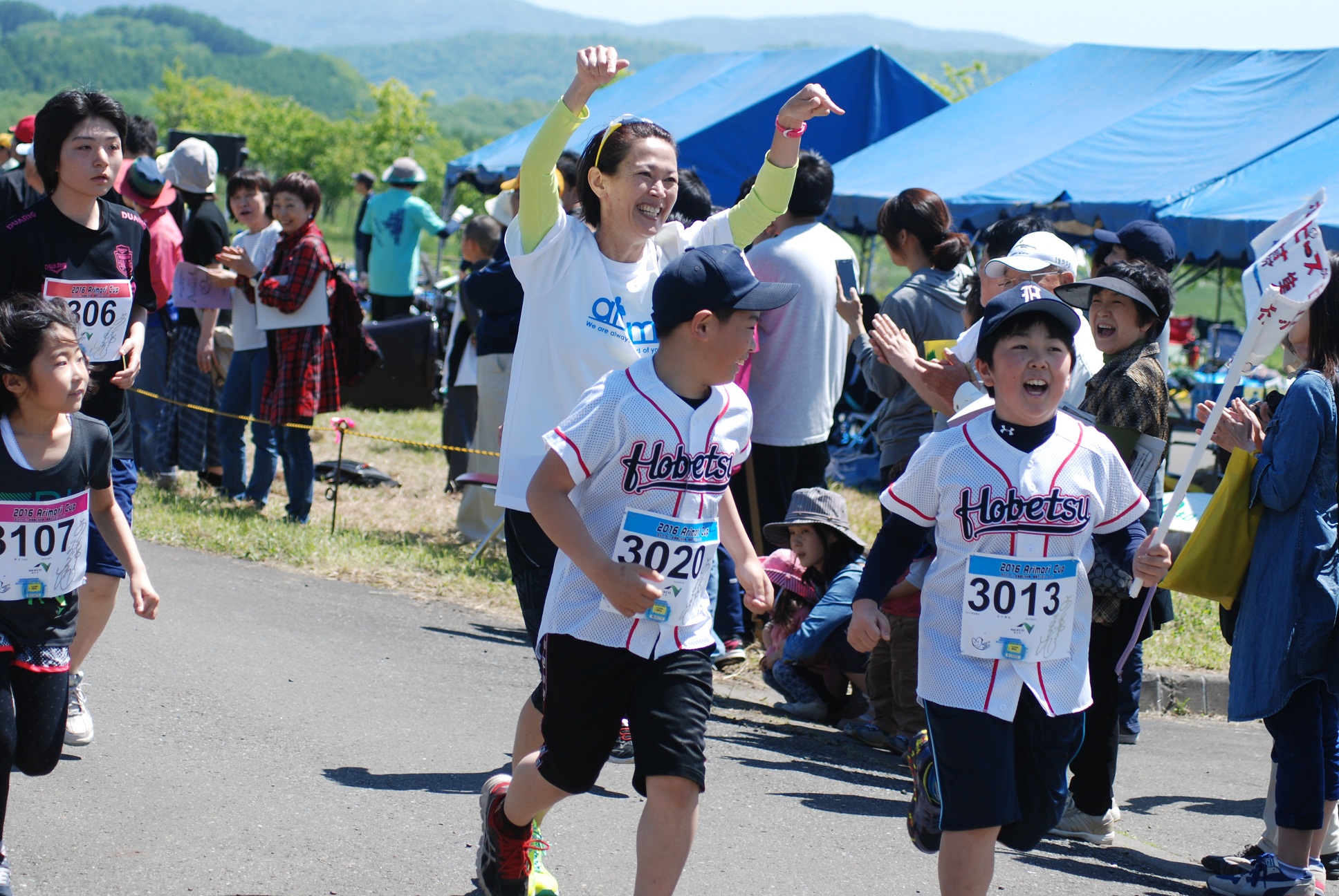“Transform everything around you as your strength” The struggle she had overcome through the process of earning the Olympic medal twice, and the motive that driven her.Former marathon runner Yuko Arimori

Two-time winner of the Olympic medal in women’s marathon, Yuko Arimori left a famous phrase, “I want to praise myself”.
Not only during her days as a top competitive runner, but also later as a professional runner, she had encouraged and moved many people. She is now devoted to activities supporting success of former athletes, and participation of disabled people in society through sports.
Not necessarily blessed with talent, why was she able to lead a remarkable career as an athlete, and to change her environment? And what had motivated her to do so? I have asked her various questions including how she wants to change society through sports.
(Interview by Minoru Sengoku/ Public Certified Accountant, tax accountant/Arranged by KK Floor)
The college days, in midst of stagnant struggle
Sengoku (S): Please tell us how you started your career in marathon, and your episodes during your college days.
Arimori (A): I belonged to the Track & Field club from my high school days, but was not able to prove myself at all. However, running was the only thing I was able to be proud of. Eventually through introduction of my then-teacher at school, I entered NSSU (Nippon Sports Science University).
When I injured back then feeling down, instead of what I cannot improve, there was a time I was searching for something no one has done yet, and thought of moving myself towards triathlon. I’ve bought an expensive, dedicated bicycle and trained myself. However, my bicycle was stolen during autumn of my third year at college. I said to myself, “I joined this college to run, so I must push myself further”, and went back into track & field.
When I was a Senior in college, in television they were showing the Summer Olympic Games in Seoul and saw the winner of the marathon, Portugal’s Rosa Mota finishing her race with a great smile.
Until this moment, I took marathon as a “sport to suffer”. However, I was touched to notice that you can “run with such a smile”. Then, I gained my interest in marathon, and gained eager “to place myself in an event where people get so impressed”. This is how I started to set my goal towards competing at the Olympics in marathon.

S: How were your days at Recruit?
A: When I joined, Head Coach Mr. Koike was even considering to place me as a team staff rather than a athlete. This shows how low the expectation toward me was at that time.
Although I won the qualify race in Okayama for the National Sports Festival, I was not able to represent Okayama for the festival, as the team staff did not enroll me for participation.
However I was not able to blame about it, as I had no record of winning at that time. But this agony changed me a lot. In my first marathon race which was the Osaka Women’s International Marathon in 1990, I have marked a record of best time for a first career race in Japanese women’s marathon.
The anguish starting from the day I won the Silver Medal
S: Your stairway to the Olympic Games in Barcelona starts from there. The qualification process attracted high attention at that time. What was your feeling back then?
A: It was very tough. Obviously, it must had been the same for my opponent Matsuno san as well. In such circumstance, our only option was to just focus on doing our best for what we have at our hand. We didn’t even have the space in mind left to think about how tough the situation was.
Later in life, I have told Matsuno san, “At that time I did whatever I could have, and you did yours. There must be no single lie about that”.
To be honest, I was not sure how to behave myself when I was chosen as the runner for the Games. I didn’t have any thought to bubble over about it, and was asking people around me if I can feel happy about it. At the very end I started thinking I will just do what I have to do.
S: And eventually you’ve won a Silver Medal.
A: To tell you the truth, neither our Head Coach nor I had thought we could win a medal. Head Coach was telling me, “You will finish within 8th place if you do well, within 5th if you’re lucky.” Even so, he was also telling me “Believe in yourself. You’ve done whatever you could. You at least won’t faint.” I was just thinking “I did this, I did that”, reminding myself on whatever I was able to achieve, just to transform that thought into my energy in running.
S: You’ve seemed to experience difficult time after you returned to Japan?
A: What affected the most in my life till today is the 4 years after Barcelona. I had no intention to have any break, feeling to aim for Gold next time.
However, people around me had discomfort towards my rise in motion. They would say to me “You’ve done great” to me, but at the same time, felt like I was avoided being arrogant, asking for special treatment.
As there were nobody who had ever won a medal in the Olympic Games in my Track & Field team back then, I believe people around me did not know how to treat and engage to someone who almost became the very top of the sport.
I started to get mentally ill, which also gave impact towards my physical condition. Though I started to move forward, there remained awkwardness in my body. Because of that, I was collecting physical pain. Then it becomes difficult to ease my jarring body. There’s no one who would understand, and no one to discuss.
Even though I keep on striving, I became lost if something is wrong in my end, or is the people around me? Being in such situation for some time, finally came the moment I could no longer run because of pain.
S: That is a shocking story.
A: Back then I thought, I had to change the culture of the sport free from ancient virtues such as aiming for medals for the sake of your country, or to commit suicide because of the pressure.
However, I was not able to change anything; regardless of earning a medal, I was not even being able to smile at all which was shocking for me. I couldn’t even think about the next Olympic Games.
S: How did you set yourself forward again?
A: People in the hospital where I had surgery (for plantar fasciitis, or jogger’s heel) were supporting me by telling me “please try again at the next Olympics”.
I’ve realized then that I still had chance to compete at the Olympics if I recover, while these people are working so hard just to regain their normal life. It struck me to my mind that I was only feeling bothered in a very privileged circumstance.
From there I started moving forward again towards another medal. Though at that time, I still had eager to figure out who was right about what I was wondering right after I won my previous medal at Barcelona. But I came to think that “I will have to win another medal, because you cannot ask yourself this question unless you become a person who can win”.
The emotion behind the unexpected phrase, “I want to praise myself”
S: You ended up becoming a Bronze medalist at the Olympics in Atlanta
A: Being in such a mood as earlier explained, I was not enjoying and was still suffering during practice. I never told anyone, did not write to friends about it, nor talk about it over phone.
And it was rather usual to injure somewhere by continuing your practice. However, strangely there were no sign of pain.
I was thinking that there was no pain due to the lack of amount of practice, and myself cutting corners. But I was content of doing the utmost. I felt easy on the morning I was to run in Atlanta, except that I couldn’t sleep well the day before.
S: “I want to praise myself” became a buzz phrase
A: When I was answering to the interview saying “But the color of the medal this time is Bronze…” my mind was returning back to 4 years ago.
When looking back, I’ve thought I can say today “I did a perfect race”. When thinking I was able to come all the way back here, and even win a medal that I committed to myself, I felt “what more can I say”. And spelled out those words. My satisfaction after 4 years of struggle, accepting myself, and the turnaround. It’s the moment I was able to tell myself, “You’ve done it!”
S: Were you trying to make a point after winning another medal?
A: I had inquired the Athletic Organization whether there is a problem through running, asking for a better environment, or speak out on how you want to spend your life. I was hoping they would consider on areas where athletes can be directly responsible with portrait rights, endorsements, and such things aside from the sport.
Then, the answer was that they would allow in my case as an exception. I told them that is not acceptable, as there will be more medalists to come in future.
To make all vital through sports

S: You have declared to take rest sometime after you have turned a pro-runner. What made you decide that?
A: I had two professional roles, one as a pro-runner, and another was with some other business. I started making excuses of my performance on both of them, to blame one for the other.
But thought that is not right. I no longer had an eager to go to the Olympics. I already had done enough in running. So, I decided to focus on the other business.
S: You now emphasize in supporting post-retirement activities of athletes and Olympic medalists.
A: I have launched a company to support athletes to find their own way to thrive the rest of their life, and have all become more vital through sports, based on my experience as a runner.
Besides this, I am also the Chairperson for the “Special Olympics Japan”. For people with intellectual disabilities, we provide various sports training, and host a sport event to have them perform throughout the year, encouraging their social participation.
S: You are also emphasizing on matters other than the Special Olympics.
A: At Heart of Gold(NPO), towards children from developing countries, disaster areas and conflict areas, the disabled, and people in poverty we provide support for self-reliance through sports education.
At elementary schools in Cambodia, by spreading physical education we are aiming to nurture children’s “sound mind and sound body”. In order to do so, for the first time we have created a manual for Cambodia’s physical education at elementary schools, training instructors. Being involved in such aesthetic and moral education, by many reasons I felt I would like to put myself more regularly in the place where children actually learn their way to survive.
I hope to create places where a disabled person and those who are not, will naturally live together, and to expand this throughout society.
S: As my final question, what is your motto? And some words for all the runners?
A: What I have set as my motto through my running, is “to transform everything around you into strength”.
In a marathon race, you will have to perform considering uncertain factors such as course condition, weather, running opponents, etc. What you need to do, is the ability to transform every of those aspects into your strength.
This, I believe is the same with our everyday life. People often say “Life is like a marathon”, or “Marathon is like life”.
I try to do my best through this phrase “everything into strength”. In marathon, just by running you can ask on various matters such as yourself, the environment, seasons, etc. By asking yourself, you will know better of who you are. The more you have to face other people, the more I would like to recommend this sport.
 (Profile)
(Profile)
Yuko Arimori (former marathon runner)
Born in Okayama Prefecture, 1966. After graduating NSSU, joined Recruit. At the Olympic Games in Barcelona and Atlanta, she earned a Silver Medal and Bronze Medal, respectively. Retired as a professional marathon runner after the 2007 Tokyo Marathon.
Founded NPO Heart of Gold in 1998, becoming its representative director. In 2002 she established “Rights”, a company managing athletes, and promoting sports businesses such as events, becoming a director then. (currently a special adviser)
Committee member for “Sports and active society committee” at IOC (International Olympic Committee), Chairperson of Special Olympics Japan, Trustee for Japan Track & Field League, and Trustee for Japan Professional Soccer League. In June 2010, for the first time as a Japanese woman, she was awarded the IOC Women’s Sports Award. In December of the same year, she was awarded the Grand Cross of the Royal Order of Monisaraphon by King Norodom Sihamoni of Cambodia.










